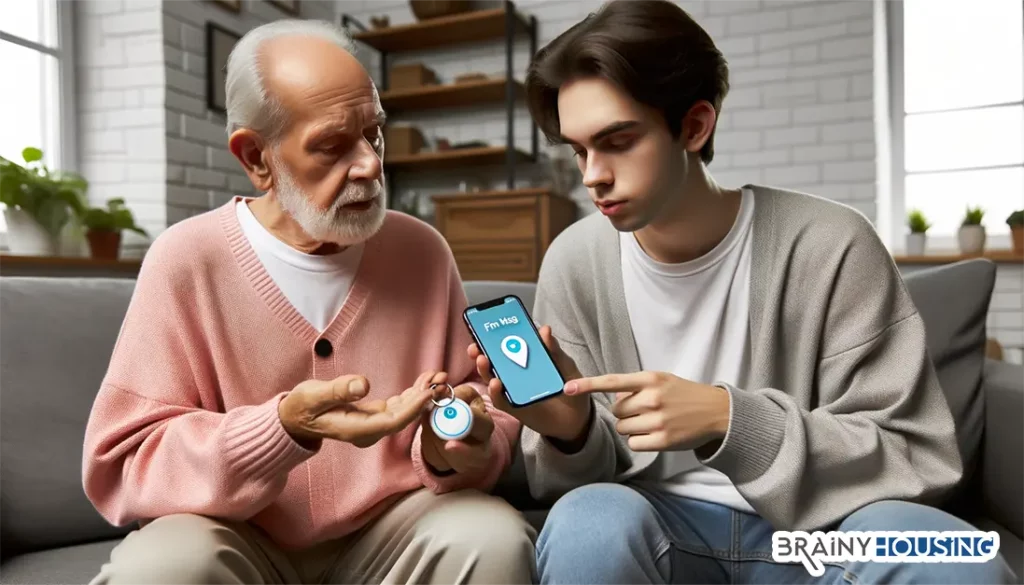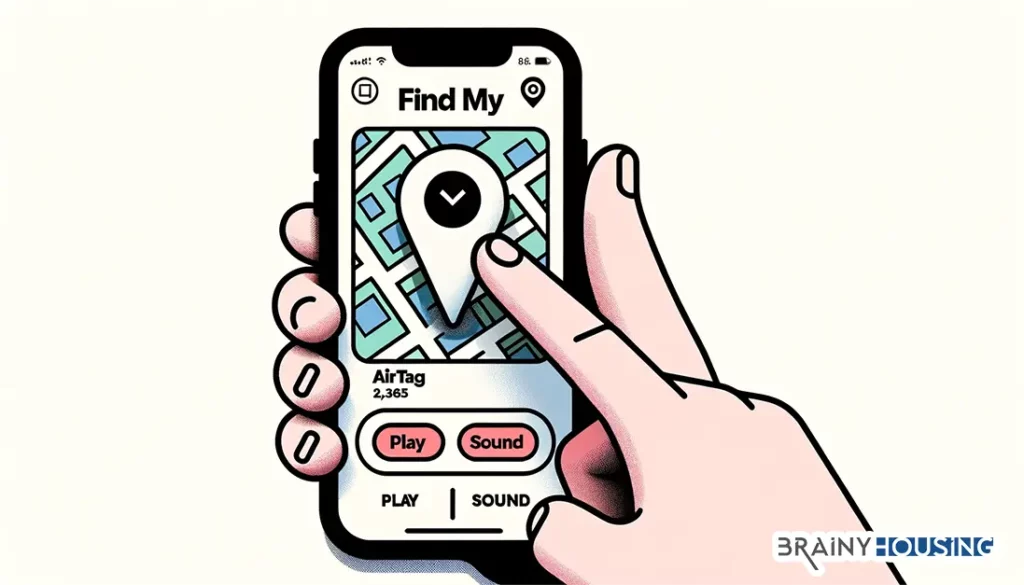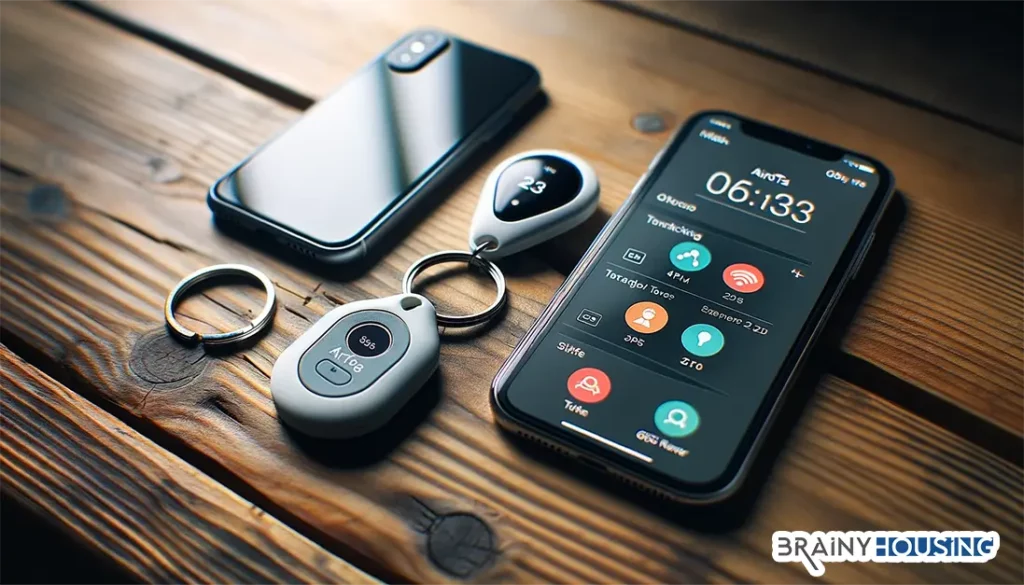Yes, you can use an AirTag to track your elderly parent. An AirTag is a small Bluetooth tracking device that can be attached to keys, a purse, clothing, or other belongings to keep track of their location through Apple’s Find My app. The main ways to use an AirTag to track an elderly parent include: attaching it to something they carry daily, monitoring the AirTag’s location in Find My, playing a sound on the AirTag if they are lost nearby, and tracking previous locations if they go missing.
While AirTags can be helpful for tracking, there are some important privacy concerns, limitations, and best practices to consider. The article discusses the benefits of using AirTags for tracking like their small size, affordability, and integration with Apple devices. It also covers limitations like sporadic tracking updates and AirTags being lost or stolen. Finally, the article provides best practices like discussing with your parent first and having a backup tracking plan in place. Alternatives like GPS trackers and cell phones are also summarized.
How to Use an AirTag to Track Your Elderly Parent?

To use an AirTag to track your elderly parent, you will first need to attach the AirTag to them or their belongings. The AirTag can be attached to a keychain, belt loop, or other item that your parent will carry with them at all times.
Once the AirTag is attached, you can open the Find My app on your iPhone or iPad and tap on the AirTag that you want to track. The Find My app will show you the AirTag’s current location on a map. You can also tap on the “Directions” button to get directions to the AirTag’s location.
If your parent goes missing, you can use the Find My app to try to locate them. The app will show you the AirTag’s most recent location, and it will also provide you with directions to that location.
Here are some additional tips for using an AirTag to track your elderly parent:
- Make sure that your parent’s iPhone or iPad is running the latest version of iOS.
- Enable Bluetooth on your parent’s iPhone or iPad.
- Make sure that your parent’s iPhone or iPad is signed in to the same iCloud account as your AirTag.
- If your parent goes missing, try to keep calm and act quickly. Open the Find My app and tap on the AirTag that you want to track. If the AirTag is nearby, you will be able to hear it chime. If the AirTag is further away, you will be able to see its location on a map.
- If you are unable to locate the AirTag using the Find My app, you can try to find it manually. AirTags have a built-in speaker that can be used to play a chime. To play the chime, tap on the “Play Sound” button in the Find My app.

Privacy Concerns When Using an AirTag to Track Your Elderly Parent
One of the main privacy concerns when using an AirTag to track your elderly parent is that the AirTag can be used to track their location without their knowledge or consent. This is because AirTags do not require any interaction from the user in order to be tracked.
Another privacy concern is that AirTags can be used to track people’s movements over time. This is because AirTags store a history of their locations, which can be accessed by anyone who has the AirTag in their possession.
Here are some tips for addressing the privacy concerns associated with using an AirTags to track your elderly parent:
- Discuss the privacy implications of using an AirTag with your parent before you start using it. Make sure that they understand that you will be able to track their location using the AirTag, and that they are comfortable with this.
- Only attach the AirTag to something that your parent will carry with them at all times. This could be a keychain, belt loop, or other item.
- Do not share the AirTag’s serial number or tracking information with anyone else.
- If you are no longer using the AirTag to track your parent, you can remove it from your iCloud account.
What Are the Benefits of Using an AirTag to Track an Elderly Parent?
There are several benefits to using an AirTag to track an elderly parent. One benefit is that it can help you to keep track of their location, especially if they are prone to wandering or getting lost. Another benefit is that it can help you to find them if they do go missing.
AirTags are also relatively inexpensive and easy to use. They are also very small and lightweight, so they can be easily attached to your parent’s belongings without being noticeable.
What Are the Limitations of Using an AirTag to Track an Elderly Parent?
One of the main limitations of using an AirTag to track an elderly parent is that it is not a foolproof solution. AirTags can be lost or stolen, and they can also be blocked by certain materials.
Another limitation is that AirTags do not provide real-time tracking. The Find My app will only update the AirTag’s location periodically. This means that there may be a delay between the time that your parent goes missing and the time that you are able to locate them using the AirTag.
Best Practices for Using an AirTag to Track Your Elderly Parent
If you decide to use an AirTag to track your elderly parent, there are a few best practices that you should follow:
- Discuss the privacy implications with your parent first. Make sure that they understand that you are using the AirTag to track their location, and that they are comfortable with this.
- Attach the AirTag to something that your parent will carry with them at all times. This could be a keychain, belt loop, or other item.
- Monitor the AirTag’s location regularly. You can use the Find My app to check the AirTag’s location on demand, or you can set up notifications to be alerted when the AirTag’s location changes.
- Have a backup plan in place. If the AirTag is lost or stolen, or if the Find My app is unavailable, you should have a backup plan for locating your parent. This could include giving them a cell phone or GPS tracker, or having a neighbor or friend check on them regularly.
Alternatives to AirTags for Tracking Elderly Parents

There are a number of alternatives to AirTags for tracking elderly parents. Some of these alternatives include:
- GPS trackers: GPS trackers are devices that use GPS technology to track the location of people or objects. GPS trackers are more accurate than AirTags, but they are also more expensive and can be more difficult to use.
- Cell phones: Cell phones can also be used to track the location of people. You can use a cell phone tracking app to see your parent’s location on a map. Cell phones are also more versatile than AirTags and GPS trackers, as they can be used for other purposes, such as making
